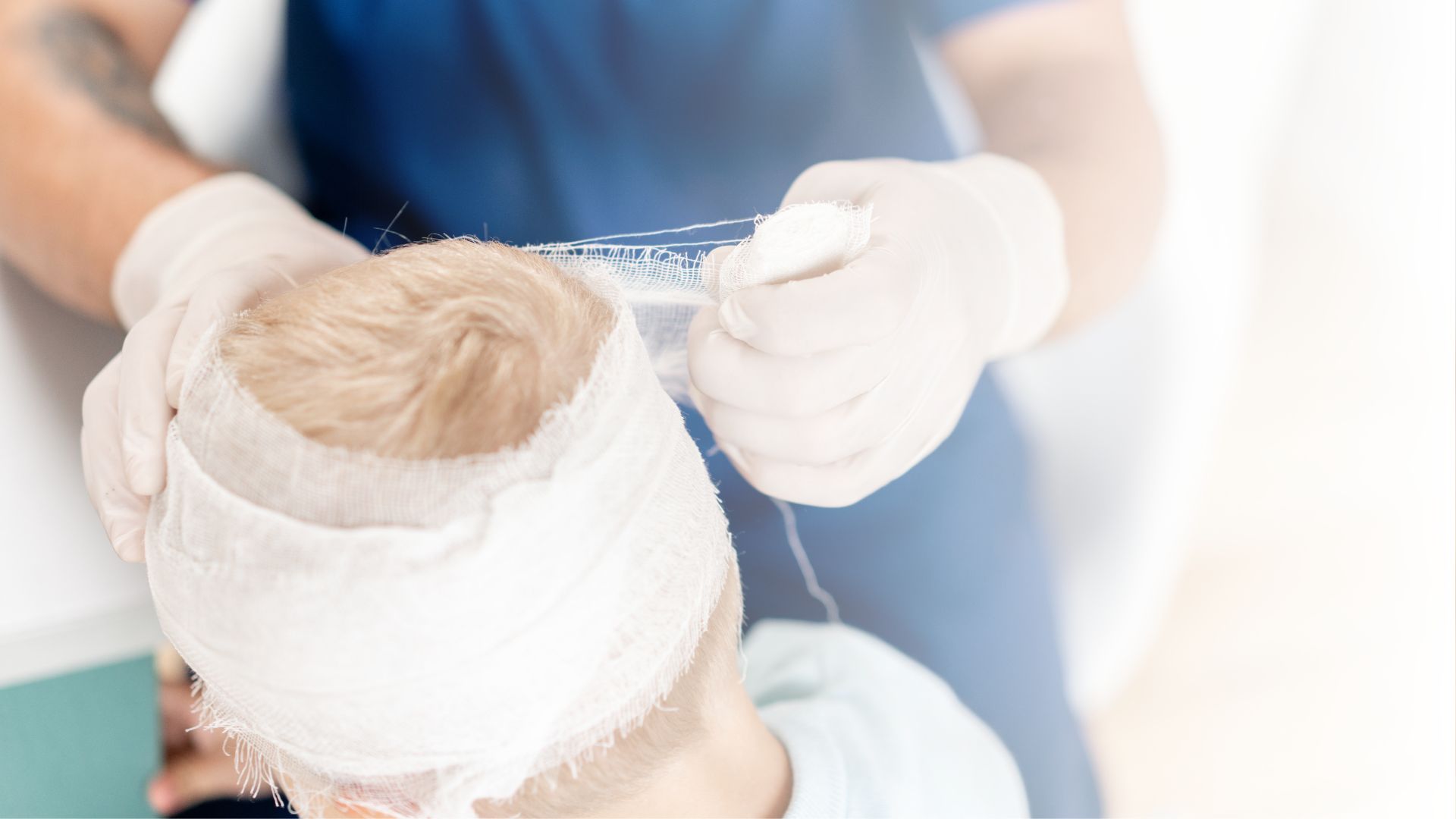
Brain and head injuries in children aren’t something a parent wants to experience. These injuries can severely affect a child’s physical, cognitive, and emotional well-being. Brain and head injuries in children can be mitigated with proper awareness, early detection, and effective prevention strategies. Brain and head injuries require immediate medical attention.
Parents, teachers, and healthcare providers play a crucial role in identifying the signs and symptoms of a brain or head injury and must seek prompt medical attention. Knowing the physiological and neurological symptoms can prevent more serious long-term complications. From wearing protective helmets while participating in sports to using car seats and seat belts properly creating a safe environment, we can positively impact the risk.
Traumatic Brain Injury
A sudden impact or force typically causes traumatic brain injury (TBI) to the head. It can also occur from an object penetrating the brain tissue, such as a bullet or shattered skull fragment. TBI can range from mild, where brain cells may only be temporarily affected, to severe, where physical damage to the brain, such as bruising, torn tissues, and bleeding, can occur. Severe TBI can result in long-term consequences or even death. (Mayo Clinic)
Concussion
A concussion is a type of head injury that temporarily impairs a person’s awareness and alertness. It can happen immediately after a traumatic event and last for a short period, from minutes to hours. Sometimes, a concussion can be mild and go unnoticed by an untrained observer. (Johns Hopkins Medicine)
Contusion
A contusion is a type of injury to the brain caused by a blow to the head. It can result in bruising and swelling in the brain.
Causes of a Head Injury
There are various causes of head injury in children, including sports injuries, falls, motor vehicle accidents (as passengers or pedestrians), and child abuse. Teenagers are more likely to get a head injury, with boys being more likely to get hurt than girls. More head injuries happen during spring and summer when kids are outside playing sports like biking, skating, and skateboarding.
Most head injuries occur late afternoon to early evening and on weekends. Although head injuries from playing sports like football, soccer, hockey, and basketball are not usually serious, they can still cause concussions and other problems. (Johns Hopkins Medicine)
Brain and Head Injury Symptoms in Children
A head injury in children can exhibit various symptoms depending on its severity. The common symptoms of a mild head injury include bumps or bruises, minor cuts on the scalp, headache, sensitivity to noise and light, irritability, confusion, dizziness, imbalanced walking, nausea, memory and concentration problems, changes in sleep patterns, blurred vision, tired eyes, ringing in the ears, changes in taste, and fatigue or lethargy.
In case of a moderate to severe head injury, which requires immediate medical attention, the symptoms may include any of the above symptoms as well as loss of consciousness, persistent headache, nausea and vomiting, loss of short-term memory, slurred speech, difficulty walking, weakness in one side of the body, sweating, pale skin color, seizures or convulsions, behavior changes, drainage of blood or fluid from ears or nose, unequal pupil size, deep cuts or lacerations on the scalp, open wounds on the head, coma, vegetative state, or locked-in syndrome. (Mayo Clinic)
What to Do If Your Child Has a Head Injury
If your child has sustained a head injury, it is essential to seek medical attention immediately. The following steps can be taken while waiting for medical assistance:
- Assess the child’s level of consciousness by asking questions and checking for responses.
- Check for bleeding and wounds – If the damage is severe, cover it with a clean cloth and apply pressure to stop the bleeding. Do not move the child if they are unconscious or has neck or back pain.
- Monitor the child’s breathing and pulse: If the child is conscious and alert, keep them awake and monitor their symptoms. Do not give the child any food, drink, or medication unless instructed by a doctor.
- Take note of the events that led up to the injury and the symptoms the child is experiencing. It is essential to seek immediate medical attention to determine the extent of the head injury and to receive proper treatment.
(HealthyChildren.org)
In conclusion, if your child has suffered a head injury, it is essential to seek immediate medical attention to ensure that the damage is appropriately evaluated and treated. Some head injuries, such as concussions, can have severe consequences if not properly managed, so it is vital to take all head injuries seriously. By being aware of the common symptoms of a head injury and the steps to take in the event of a head injury, parents can help ensure that their child receives the proper care they need to recover from their injury and return to normal activities.
Works Cited
Mayo Clinic. “Traumatic Brain Injury.” Mayo Clinic, Mayo Foundation for Medical Education and Research, 4 Feb. 2021, www.mayoclinic.org/diseases-conditions/traumatic-brain-injury/symptoms-causes/syc-20378557.
Johns Hopkins Medicine. “Head Injury in Children.” Head Injury in Children | Johns Hopkins Medicine, 8 Aug. 2021, www.hopkinsmedicine.org/health/conditions-and-diseases/head-injury-in-children#:~:text=Lifelong%20considerations%20for%20a%20child%20with%20a%20head%20injury&text=Children%20who%20suffer%20a%20severe,or%20behavior%20may%20also%20occur.
HealthyChildren.org. “Head Injury in Children: How to Know If It’s Minor or Serious.” HealthyChildren.org, www.healthychildren.org/English/health-issues/injuries-emergencies/Pages/Head-Injury.aspx.





